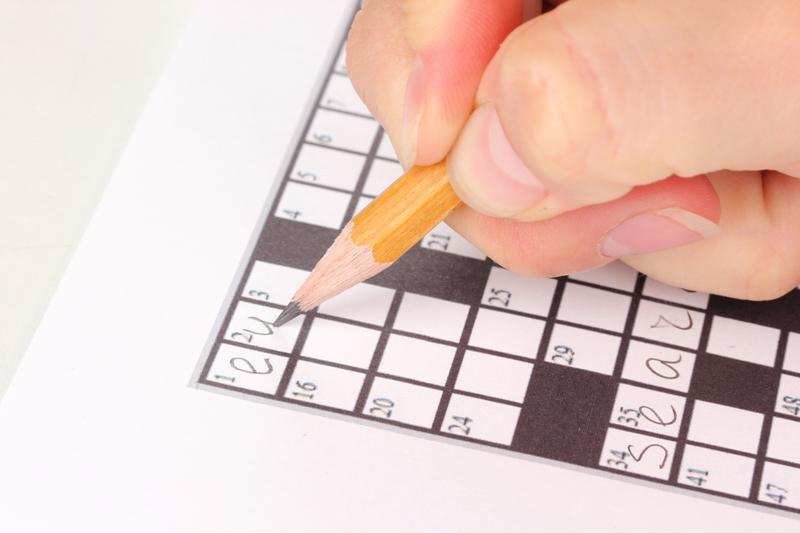
Crosswords are a favorite pastime for many, whether you prefer a big book of puzzles on a road trip or sitting down with the Sunday paper and accompanying crossword.
And if you’ve ever had the feeling that completing such word puzzles keeps you mentally fit, it may be more than just a hunch.
There’s an increasing amount of evidence that crosswords can positively affect brain health. This link makes them an ideal hobby for seniors to pick up. Finding ways to stay sharp mentally is vital in retirement, and all you need for a crossword is a pencil—or pen, if you’re feeling lucky.
While a growing body of research points to the health benefits of crosswords, it’s vital to note that they cannot prevent dementia and related conditions like Alzheimer’s disease. A crossword habit, however, can mitigate that risk and potentially point the way toward future dementia therapies and treatments.
A Lifetime of Cognitive Activity Tied to Fewer Damaging Protein Brain Deposits
A 2012 study from researchers at the University of California, Berkeley, found a high correlation between increased brain health and regular brain-stimulating activity (like the type generated when doing crosswords, reading or completing other brain teasers). At the core of this conclusion was the finding that study participants (all over 60 and with varying histories of mentally engaging activities) exhibited less frequent deposits of the beta-amyloid protein, a biological indicator of the disease. Brain scans of participants were compared with individuals diagnosed with Alzheimer’s and healthy individuals in their 20s, with researchers observing a “significant association” between high levels of cognitive activity and decreased levels of beta-amyloid present in scans.
 Crosswords and cognitive stimulation are important for seniors.
Crosswords and cognitive stimulation are important for seniors.“These findings point to a new way of thinking about how cognitive engagement throughout life affects the brain,” said study principal investigator Dr. William Jagust, professor at UC Berkeley’s Helen Wills Neuroscience Institute, the School of Public Health and Lawrence Berkeley National Laboratory. “Rather than simply providing resistance to Alzheimer’s, brain-stimulating activities may affect a primary pathological process in the disease. This suggests that cognitive therapies could have significant disease-modifying treatment benefits if applied early enough, before symptoms appear.”
Researchers were cautious to note this relationship was seen over a lifetime of regular cognitive stimulation. Protein deposits take time to build up over an individual’s lifetime, so picking up crosswords later in life can’t reverse a tide, but it can provide benefits in other ways.
“There is no downside to cognitive activity,” Jagust continued. “It can only be beneficial, even if for reasons other than reducing amyloid in the brain, including social stimulation and empowerment. And actually, cognitive activity late in life may well turn out to be beneficial for reducing amyloid. We just haven’t found that connection yet.”
Further Studies Link Crosswords to Better Brain Health
While a history of overall cognitive stimulation is healthy, crosswords specifically have been shown to have an impact.
A 2014 study published in the “Journal of the International Neuropsychological Society” found crosswords could delay the onset of memory decline in the preclinical stages of dementia. In an aging study following Bronx retirement community residents who all began the study “cognitively intact,” researchers quantitatively assessed that crosswords could delay onset and accelerate memory decline by 2.54 years. Compared to the UC Berkeley study focusing on a lifetime of cognitive stimulation, researchers of this study said their findings indicated that even picking up the habit in later life could potentially delay dementia symptoms.
A massive study by the University of Exeter Medical School and Kings College London further reinforced the academic evidence that crosswords can have real-life positive health effects. After analyzing data from more than 17,000 people 50 and over, the research team found the most active crossword enthusiasts scored higher on tasks assessing attention, reasoning, and memory.
Based on their results, researchers estimated that individuals who are highly engaged with word puzzles demonstrate brain function equivalent to 10 years younger than their age on grammatical reasoning speed and short term memory accuracy tests. Study authors reasoned the next step is testing the viability of crosswords as an effective tool in treatment or prevention of dementia.
Crosswords are a Favorite for Many in Retirement Communities
Living in a retirement community can keep you socially and mentally active. Communities are full of residents who enjoy crosswords, and though you may not complete them together, asking each other about 20-across or 13-down the day after helps promote continued cognitive activity.
Many communities focus on ensuring seniors receive the social and mental stimulation they need to live active lives in retirement. Seniors can use computer labs to print out their favorite crossword, relax in a common area with a puzzle, or join a crossword-themed club.
Contact us today if you are interested in how Edgewood communities can help you or a loved one.




